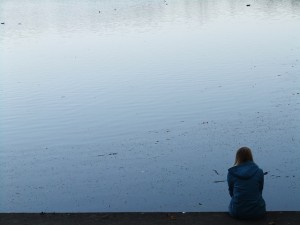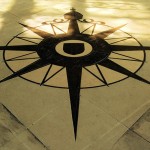Spiritual practice, to me, is a form of self-care. Along with eating well, moving my body, and getting enough sleep, it’s one of the core ways that I take care of myself. I’ve long thought about how to manage my schedule to make enough time for these activities, and I’ve done it increasingly successfully over the years.
I’ve found my need for rest much harder to fulfill, though. Here’s a confession: I’m an introvert. I am talkative and sometimes bossy, and at times I crave company. I spend a lot of time working in ways where I am visible and “on” as part of my job, and some of my most favorite things — teaching and leading ritual among them — require this of me. But I need downtime, and specifically solitude, to be able to do them.
I’ve resisted this for a long time. I am delighted to have wonderful people in my life, and I could fill 48 hours a day and still not have every interesting conversation I’d like to have with them. This hasn’t always been true in my life, and I value it all the more for that. So I’ve always felt that my need for alone time made me high-maintenance, and that if only I were somehow managing things better, I wouldn’t need or want so much of it.
For this reason, reading Susan Cain’s book on introversion (Quiet: The Power of Introverts in a World That Can’t Stop Talking) was a revelation to me. Although I’ve always intellectually accepted that introverts and extroverts are both valuable people with good ways of being in the world, the cultural bias towards extroversion that she highlights in the first part of the book took me completely by surprise. She says:
“Introverts living under the Extrovert Ideal are like women in a manʼs world, discounted becauseof a trait that goes to the core of who they are. Extroversion is an enormously appealing personality style, but we’ve turned it into an oppressive standard to which most of us feel we must conform.”
Somehow, hearing this from outside of myself made it suddenly easy to believe, and this changed my relationship to rest, aloneness, and downtime. They’re still things I struggle to find a balance of in my life, but they’re no longer things I resist needing.
Moral of the story: we all need the things we need, and thinking that we don’t or shouldn’t or would be better people if only we didn’t doesn’t turn out to help much. I’d love to hear your stories: what need of yours did you resist? Are you resisting still, or have you learned to accept it? What helped?













